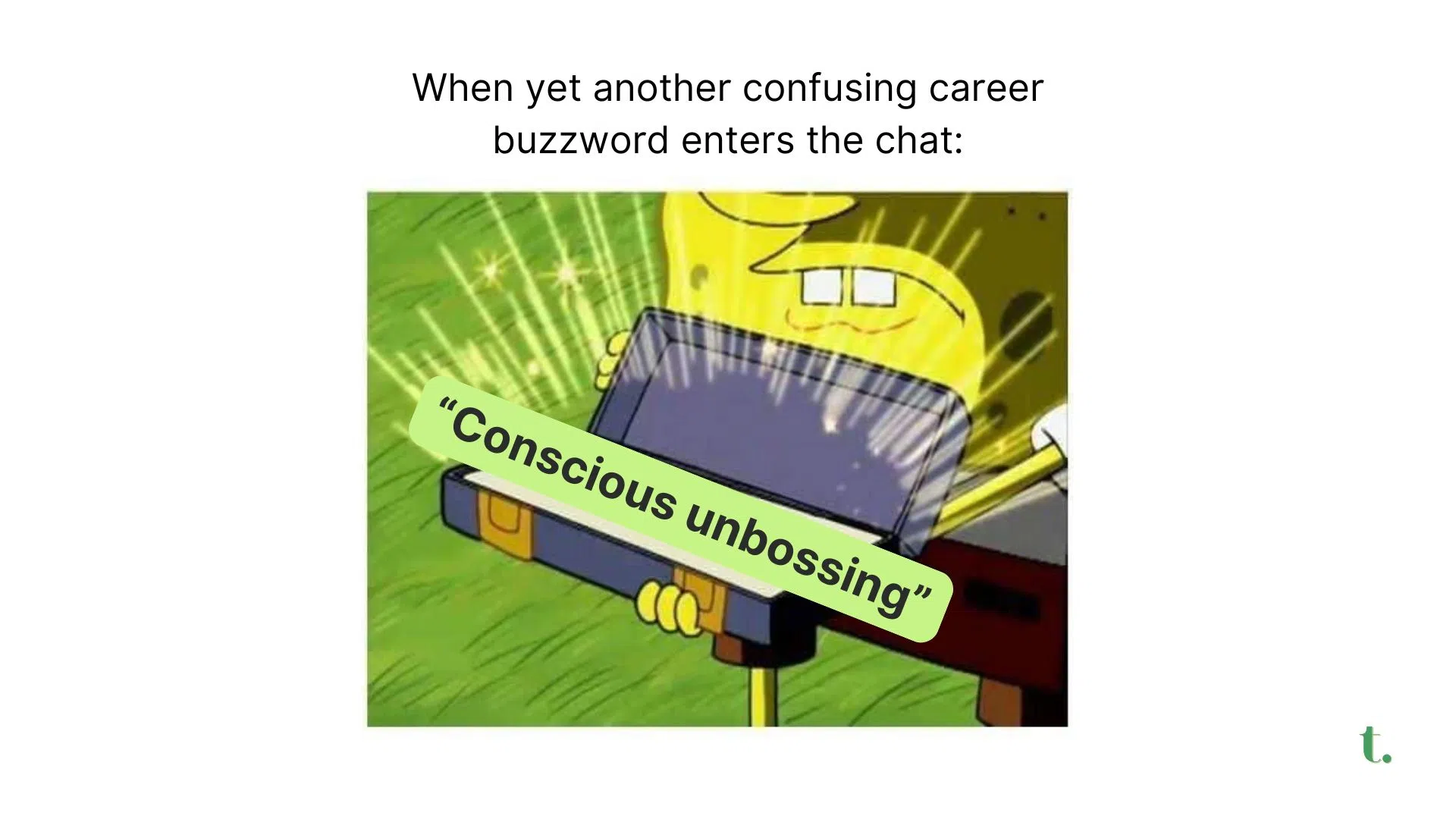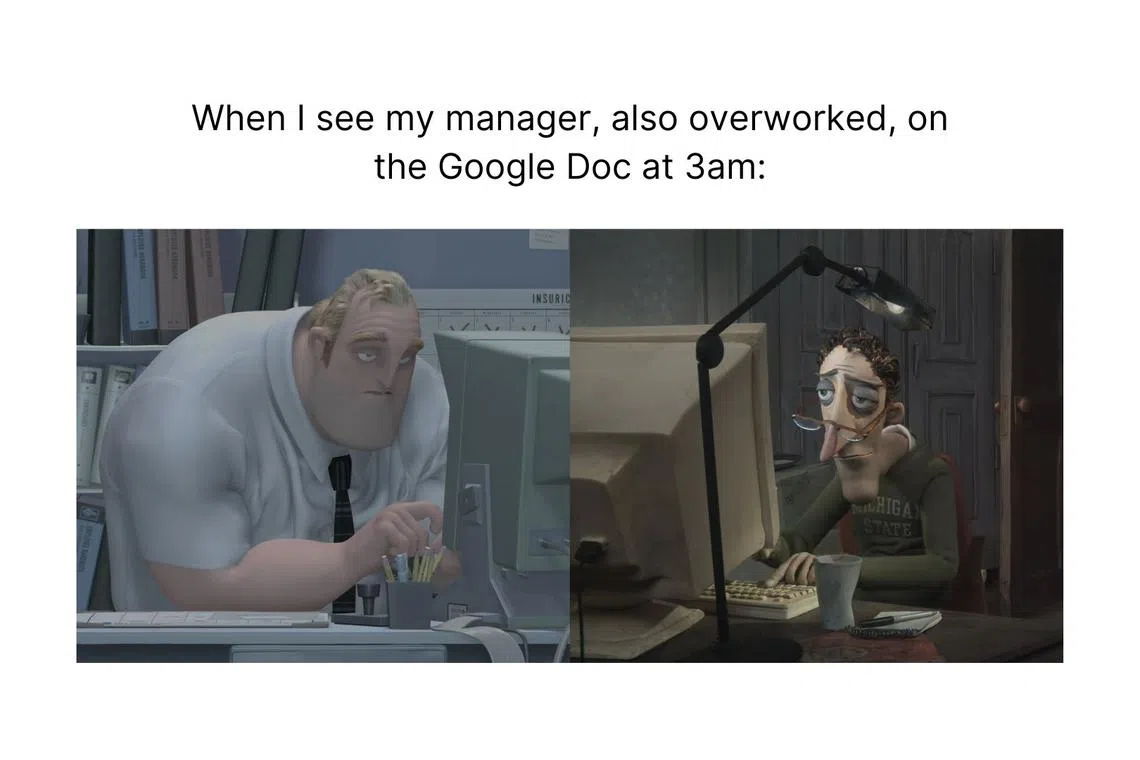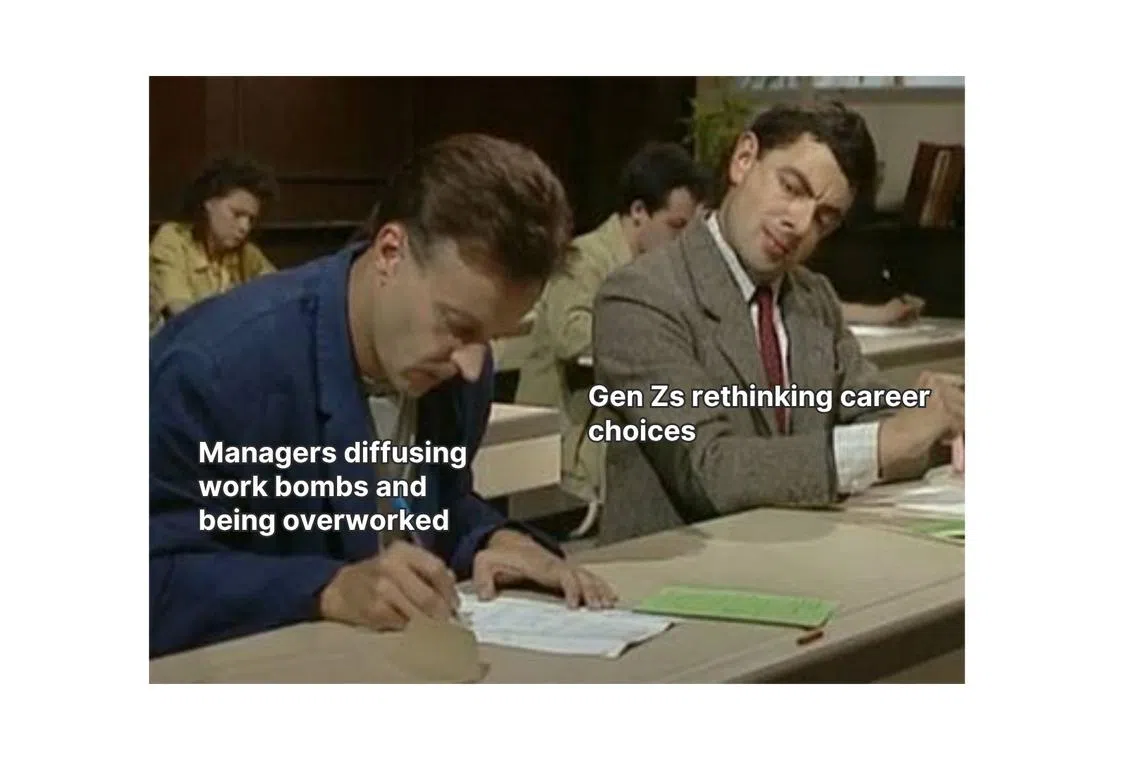🤯 It’s not that Gen Zs don’t want to be managers – they want to redefine the role

Straight to your inbox. Money, career and life hacks to help young adults stay ahead.
[SINGAPORE] The term “conscious unbossing” sounds like another made-up buzzword (anyone else remember Gwyneth Paltrow’s “conscious uncoupling”?), but the trend is real.
It refers to the workplace movement where more young adults choose not to go down the management path, viewing it as a route with many challenges and little reward.
In the past, management was seen as the main path for career advancement. However, this changed post-pandemic, as companies from Meta to HSBC flattened hierarchies to cut costs.
With fewer among their ranks, middle managers are being squeezed harder than before, with a lot more pressure and responsibility, but also less upside.
Gen Zs, many whom joined the workforce during the pandemic, are taking notes.
In a survey by Robert Walters late last year, almost three-quarters of Gen Zs (72 per cent) would rather be individual contributors than middle managers. The top reason? Too much stress for too little reward.
Navigate Asia in
a new global order
Get the insights delivered to your inbox.
Meanwhile, a separate survey by marketplace vendor Capterra found that three out of four middle managers were burnt out.

🤔 Do Gen Zs really hate management?
But numbers don’t tell the full story.
So I did what any data-driven reporter would: I ran my own extremely scientific poll of peers and younger contacts.
Interestingly, millennials – not Gen Zs – were most resistant to taking on management roles. It tracks, as we are often described as the burnout generation, as we are caught in the middle due to our current life stage.
Gen Zs, on the other hand, are a lot more open to the idea. But with some caveats.
“I wouldn’t necessarily say Gen Zs don’t want to manage,” says Nicole Choo, 27, who is a business development and digital consultant at OpenMinds Singapore. “I think many of us just want to do things differently… I’m not just looking to ‘manage’ as I want to build (a team).”
She’s not a manager currently, but it’s something that she is actually keen on. She views management as “more than just a title” – it’s a way to mentor, guide and learn from her team. Inspired by mentors she’s had, she’s keen to pay it forward, even if it’s “one of the toughest parts of any job scope”.
Some of her peers have taken on leadership roles, but others prefer deep craft work – which is perfectly valid too.
“We’re becoming clearer on what fulfilment and happiness look like, not just what success traditionally means,” she says.

🔨 Making management work
Choo’s view injects some nuance to what earlier surveys are saying: Gen Zs aren’t rejecting leadership – they’re just opposed to outdated management structures and mindsets. It’s not authority they want per se, but autonomy, purpose and space to make an impact.
So if you’re unsure whether management is for you, here are some questions worth asking:
- Do you like working with people?
Management is more about people than KPIs. It’s not about being naturally good with people, though – management is a skill you can work at. If you care about your team’s growth, you’re halfway there.
- Why do you want to manage?
If you think it’s the surest path to less work for more pay, boy, do I have news for you. But if you find yourself considering management because you want to level up your skills beyond technical expertise, or take on more responsibility, that’s a pretty good sign.
- Do you enjoy strategy and teamwork?
As you move from being an individual contributor to a manager, you are not just handling your own work anymore. Your thinking needs to go beyond your own individual performance to a more macro view of what matters to the company and how your team can position itself for success.
- How do you feel about being a manager?
To be fair, this IS kind of a trick question, but I always believe that your gut feeling is a good gauge. If you’re nervous or unsure, that’s normal. If you’re completely turned off, it might not be the right fit (for now, at least).
- How do you handle stress?
Your employees’ problems will now be your problem. And your manager’s problems are also your problems. Your staff look to you for support and stability – you can’t have a public breakdown whenever it gets hard. You need to know your limits and coping strategies.
- Will you have a say in the people you lead or how the role is structured?
Are you empowered to make changes or shape processes instead of just following what was done before? If your superiors don’t want you to rock the boat, consider if this is aligned with your values and what you want out of your job.
There are no easy answers to whether one should be a manager. But as a millennial middle manager myself, what I find extremely encouraging is that Gen Zs are rewriting the rules, questioning the old playbook and redefining what leadership can look like. I say that’s a win for the future of work.

TL;DR
- Gen Z isn’t rejecting management – they’re reimagining it
- They value purpose, autonomy and impact over titles
- Some Gen Zs do want to lead, but on their own terms and timelines
- Ask yourself key questions if you’re uncertain if management is for you
Decoding Asia newsletter: your guide to navigating Asia in a new global order. Sign up here to get Decoding Asia newsletter. Delivered to your inbox. Free.
Copyright SPH Media. All rights reserved.

